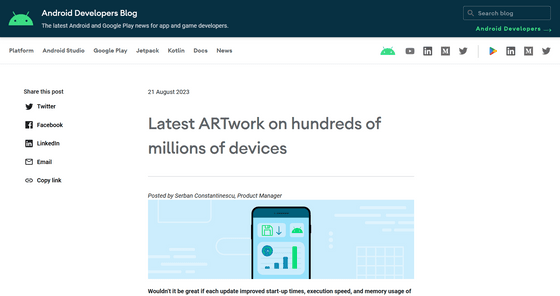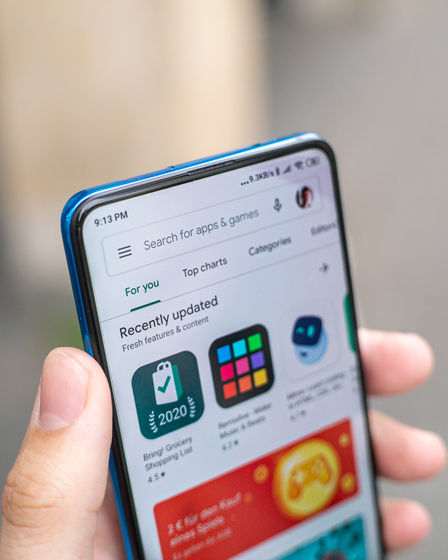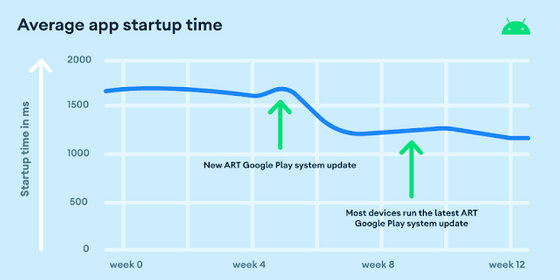Google announces update of ``Android runtime'' that speeds up application startup by 30%, and Android 12 or later speeds up old smartphones

On August 21, 2023, Google announced that it will be able to significantly improve the startup time and execution speed of applications by updating
Android Developers Blog: Latest ARTwork on hundreds of millions of devices
https://android-developers.googleblog.com/2023/08/latest-artwork-on-hundreds-of-millions-of-devices.html

ART is a program execution environment that plays a central role in running apps on the Android OS.
Google has officially modularized ART in Android 12, making it possible to update ART alone via the Play Store without having to update the entire OS with a system update.

By being able to update ART separately from updating the OS, users will be able to quickly enjoy benefits such as improvements in app startup time, execution speed, and memory usage, and security fixes will be faster.
In this announcement, Google reported that ``Android 13's ART update optimizes the runtime and compiler, improving actual app launch by up to 30% on some devices.''

According to Ars Technica, an IT news site that covered Google's announcement, ART is now under version control like the OS, and Android 14, which is scheduled to be released from September to October 2023, It will be ART 14. As mentioned above, ART can now be updated independently of the OS, so Ars Technica said, ``It is possible to run ART 14 even on Android 12 terminals that have been left unattended,'' and ART that will appear in the future. He pointed out that the performance improvement of Android 12 and later will benefit all users.
ART's modularization also benefits developers, with Google saying, 'You can get things like OpenJDK improvements and compiler optimizations that benefit both Java and Kotlin.' , making it the fastest ever adoption of a new OpenJDK release on Android devices.'
Google will jump from OpenJDK 11, which was used in ART 13, to OpenJDK 17 in ART14, saying, ``We plan to release ART 14 to all compatible devices in the next few months. ART 14 includes new compiler and runtime optimizations that improve performance while reducing code size, as well as support for OpenJDK 17. Stay tuned for more details on ART 14.' .
Related Posts:
in Software, Smartphone, Posted by log1l_ks







